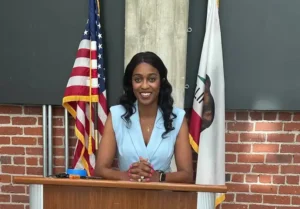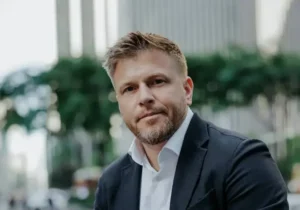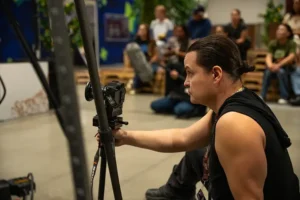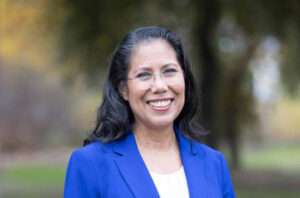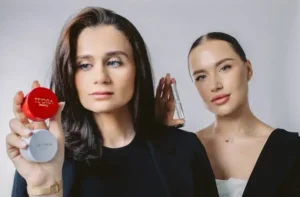From the streets of Baku to the academic halls of California State University, Sacramento, Esmira Mammadova’s story is one of courage, resilience, and relentless pursuit of excellence. A European Champion and three-time World Medalist in MMA, she’s as comfortable in a business suit as she is in the octagon. After earning her economics degree with honors from Moscow State University, Esmira transitioned from managing her family business to pursuing an MBA in Finance in the United States — all while training toward her ultimate dream: earning a UFC belt. Her journey bridges worlds, from combat sports to corporate strategy, inspiring a new generation of women to believe that strength and intelligence are two sides of the same victory.
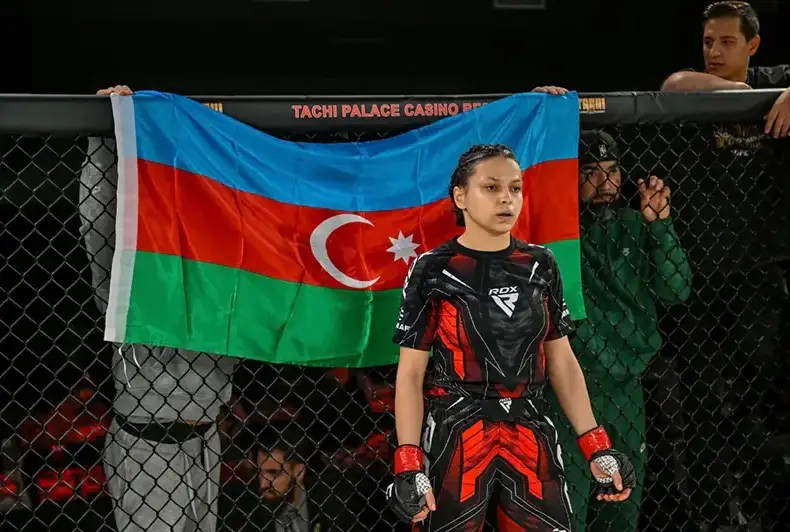
Esmira, how did your journey in combat sports begin, and what motivated you to stay when most people would have walked away?
I always dreamed of becoming a professional athlete, but as a kid I doubted myself and was afraid to start. After my family moved from Ukraine to Azerbaijan, it was hard to make new friends and I was bullied at my new school. My mom decided to take us to a combat jiu-jitsu gym. From the first days I felt like I was born for sport, and after my first win over a black-belt girl I understood that experience isn’t everything, sometimes the strength of your spirit and the will to win matter more.

When COVID hit and gyms closed, I kept training, running outside and studying technique on YouTube. That’s when my mom realized how serious I was. She found the best MMA gym in the country and brought me there. On my first day the coach said there were no girls with real character here. I didn’t argue, but I thought, “You just don’t know me yet.” My MMA journey has been very hard, and I’ve wanted to quit more times than I can count. What keeps me going is remembering where I started, the sacrifices my mom made, sometimes using her last money for my training, and the little girl inside me whose dream is still alive. That’s why I stayed when others would have walked away.
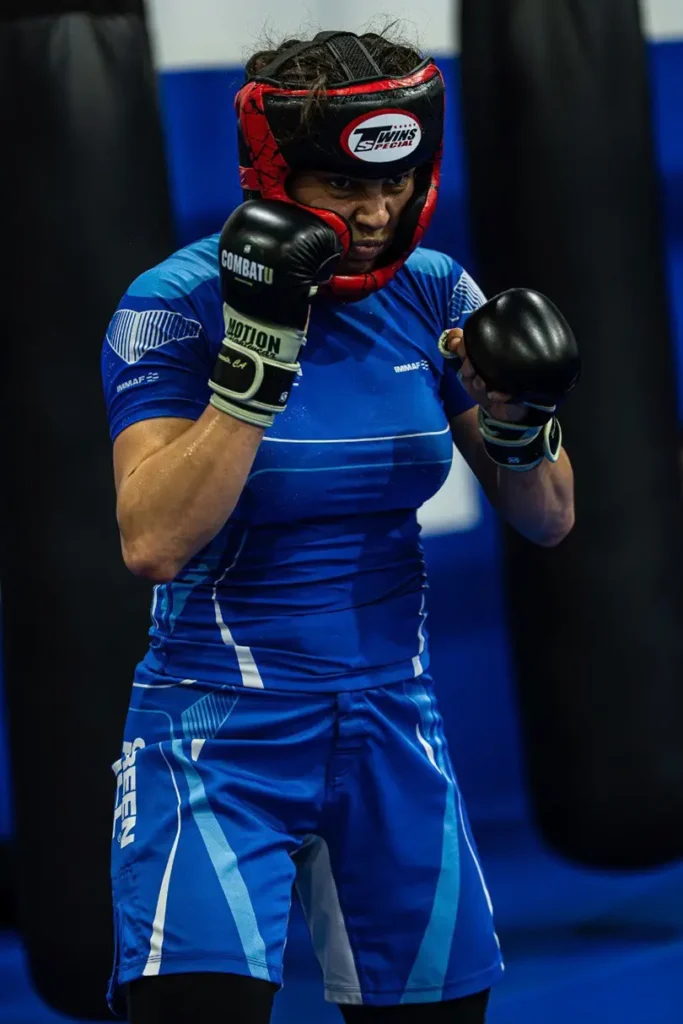
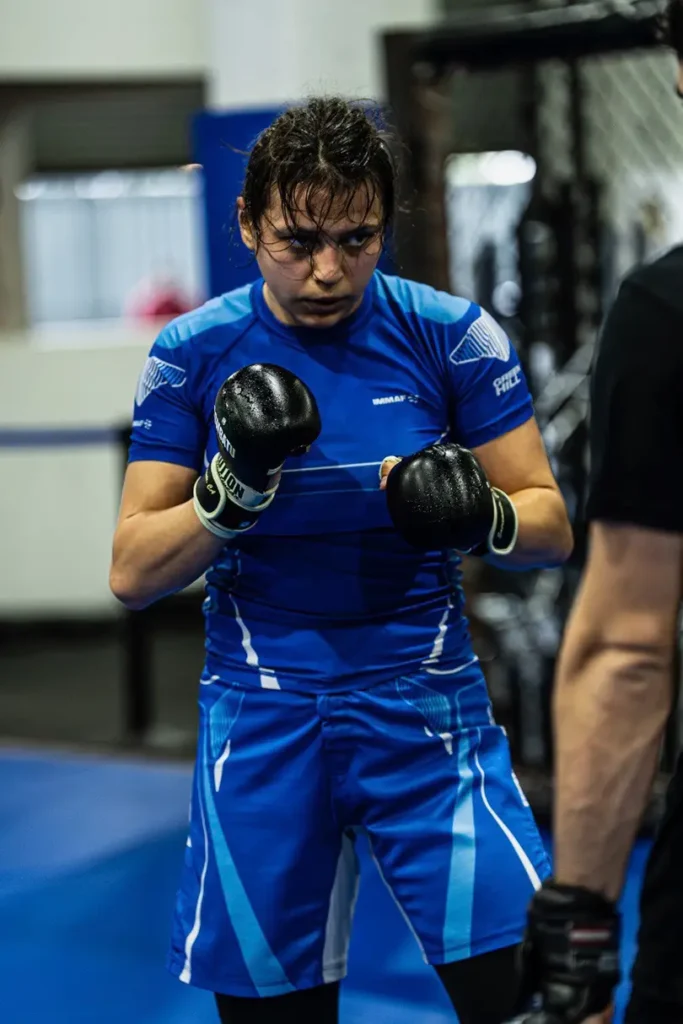
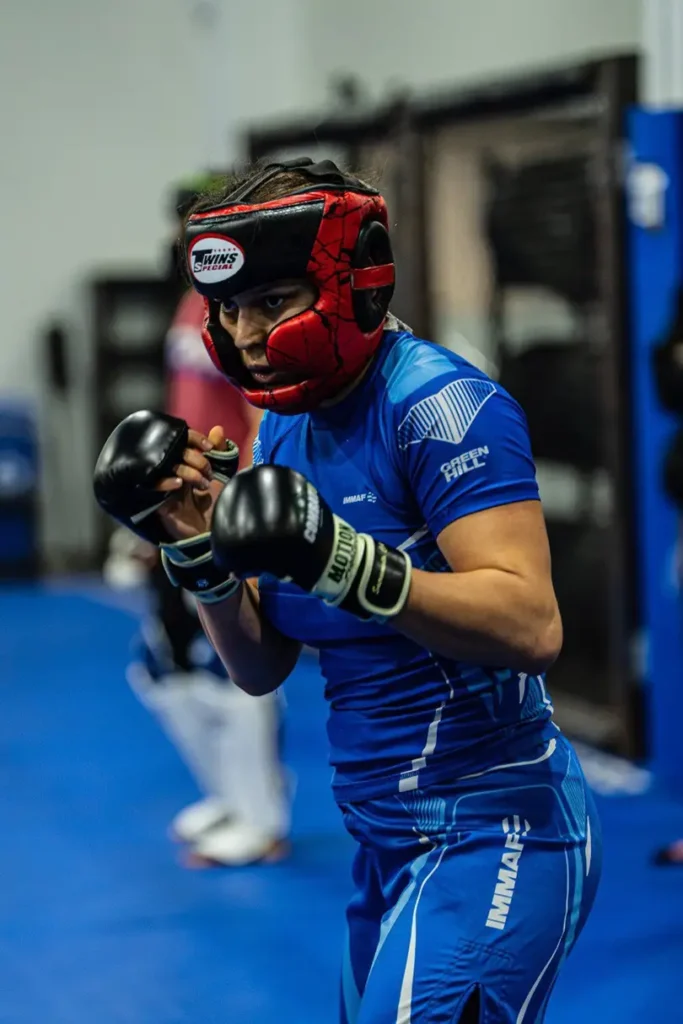
“Experience isn’t everything, sometimes the strength of your spirit and the will to win matter more.”
You’ve faced bullying at a young age, how did those early challenges shape the fighter and leader you became, Esmira?
My life hasn’t been easy or rosy. My mom raised my sister and me on her own. As a child I experienced abuse, and after we moved I faced bullying at a new school. Those experiences made me stronger, they taught me resilience, empathy, and how to show up for others. Before every fight my mom reminds me, “Remember your path.” That reminder keeps me calm under pressure and helps me lead by example.
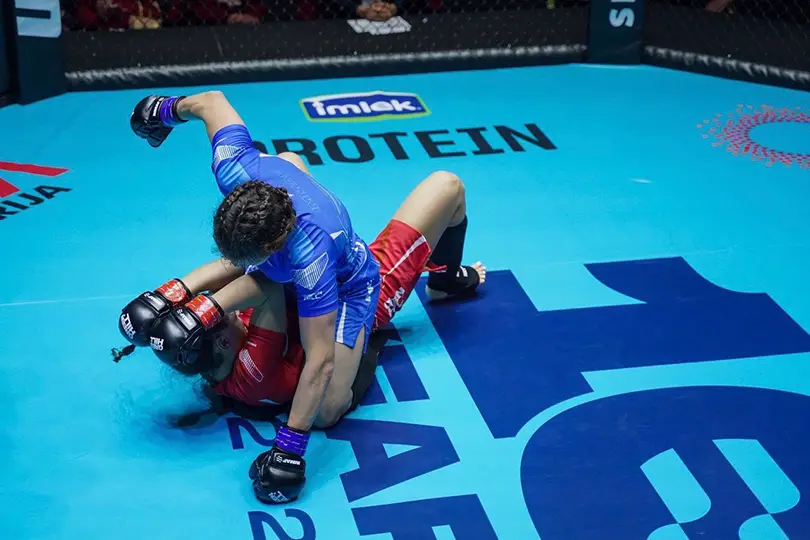
You’ve excelled both in athletics and academics. How do you, Esmira, balance the discipline of a fighter with the mindset of a scholar?
I try to be the best in everything I do and use every opportunity. I don’t put limits on myself or make excuses, I stay focused and disciplined. Sport and school actually complement each other: the discipline from training helps me commit to classes and deadlines, and the analytical mindset from education helps me plan, adjust, and improve in sport. That’s how I balance both worlds, show up, execute, review, and keep getting better.
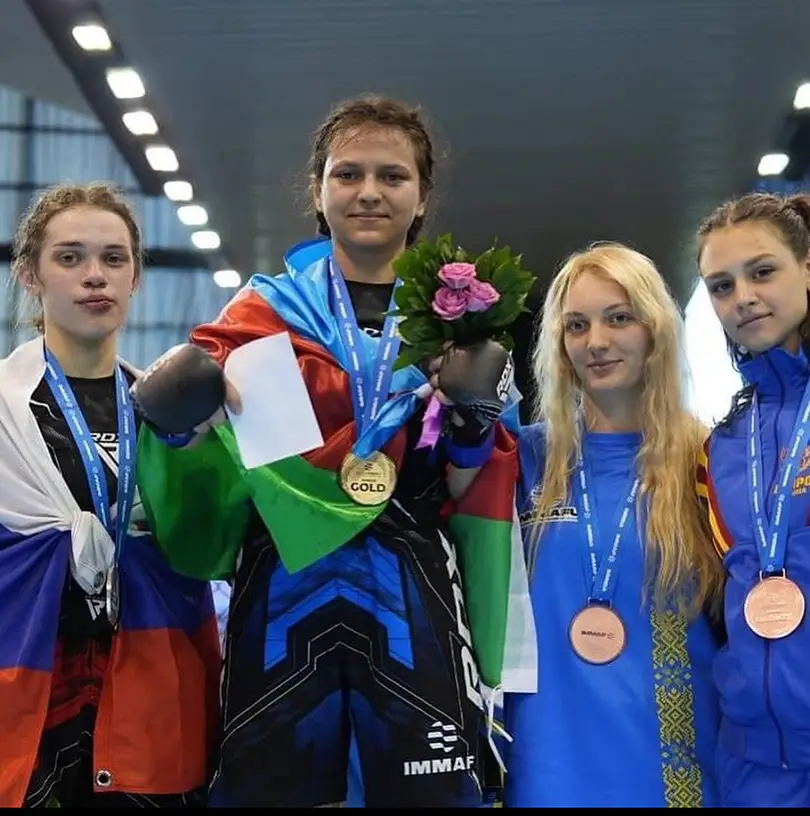
“Sport and school complement each other, one builds discipline, the other strategy.”
When you first came to the U.S., Esmira, what was the hardest part of your transition and what surprised you most?
About a year ago, I came to the U.S. for a training camp. It exceeded my expectations, the first time I trained alongside UFC fighters and coaches. The person who changed my path was Urijah Faber, a UFC Hall of Famer and owner of the gym I visited; he told me about the Combat U program, a way to earn an American education while continuing to train. It sounded impossible; I didn’t know anyone studying in the U.S. on scholarship while also pursuing a sports career. When I returned home, I started to prepare and applied to Sacramento State. For months I heard nothing. I didn’t know whether I’d be admitted or receive a scholarship, and I almost lost hope. My mom kept reminding me to be patient and trust God. Then, unexpectedly, the scholarship approval arrived. Now I’m in Sacramento, so it’s real.
The hardest part of my transition wasn’t language or culture, it was the uncertainty and the persistence it took to get back here and start over.
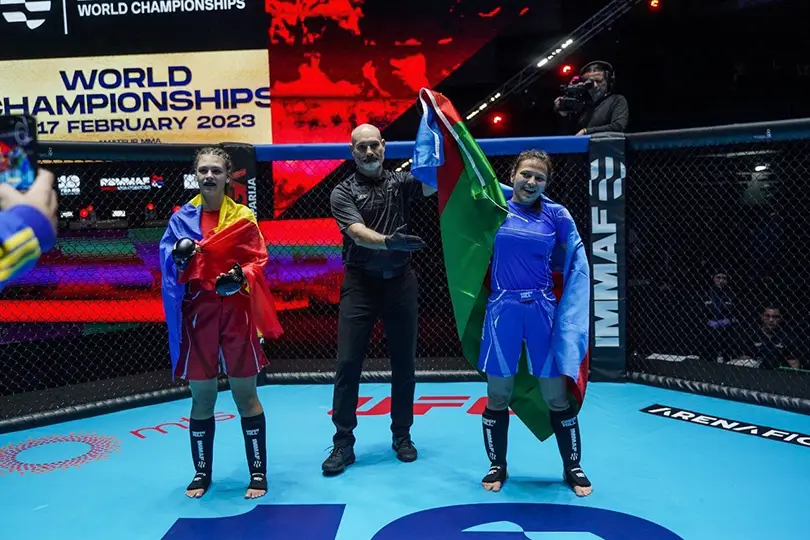
As a woman in a male-dominated sport, what barriers did you encounter, and how did you overcome them?
In Azerbaijan I faced barriers every day. Society expected women to stay home, look after children, and put family first — not step into a combat gym. When I walked in, I was the only woman among big, muscled men. I handled it by staying laser-focused on my work. I tuned out opinions, showed up, trained, and kept going. That consistency not arguments, was how I moved past the noise.
What role did your mother play in your journey, Esmira, both as a parent and as a source of strength?
My mother is my hero. She has always put me first. I was born with paralysis, and doctors said I might never even hold a spoon, but she refused to accept that. She prayed, asked churches to pray, and against the odds, I recovered. All my life she’s reminded me that I’m here for a purpose, that those prayers over me as a newborn mean I’m under God’s protection. She’s the one who took me to the gym, pushed me to keep going, and, when money was tight, still found a way to pay for my training. Her courage anchors me. As a parent and as my source of strength, she’s the reason I work harder, aim higher, and keep moving forward.
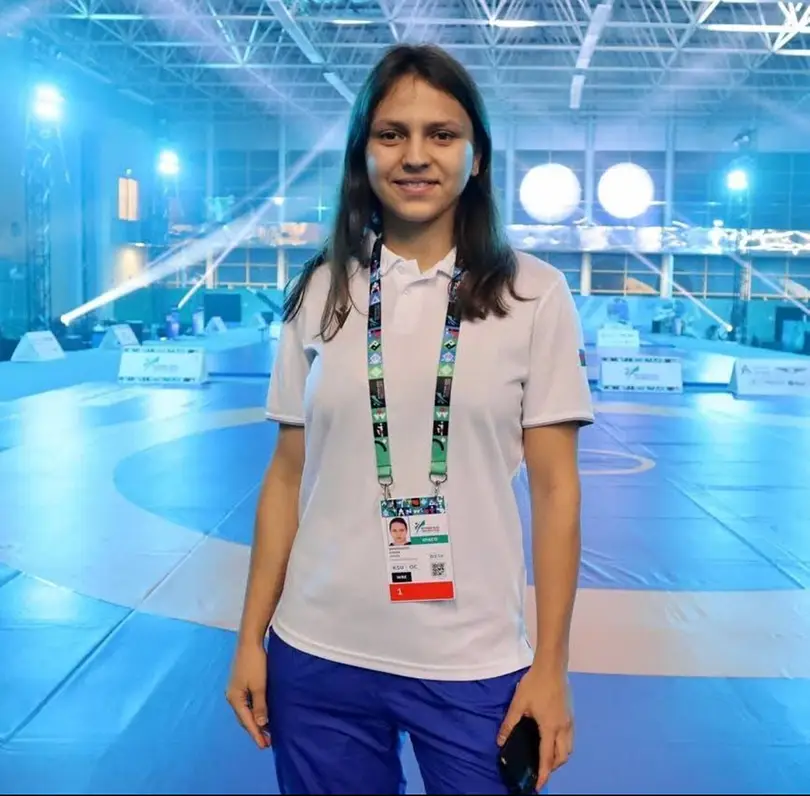
“My mother is my hero, her faith and courage became my foundation.”
You studied at one of the most prestigious universities in the world and worked at a Big Four firm. How has that experience shaped Esmira Mammadova as a business leader?
Studying at a top university taught me to hold a very high bar, manage time ruthlessly, and make the most of my scholarship, I treated every class like an opportunity I had to earn. Being selected to join a Big Four firm reinforced that mindset: I saw world-class discipline, structured problem-solving, documentation, and client-first execution. When it came time to choose between a full-time career there and my athletic path, I chose to pursue my dream. I then applied those business skills to my mother’s small company, building marketing from scratch (our videos reached millions of views), handling budgeting and taxes, and learning to measure what matters. That mix shaped my approach to business and leadership, set clear goals, track results, communicate simply, hold a high standard, and lead with empathy and resilience.
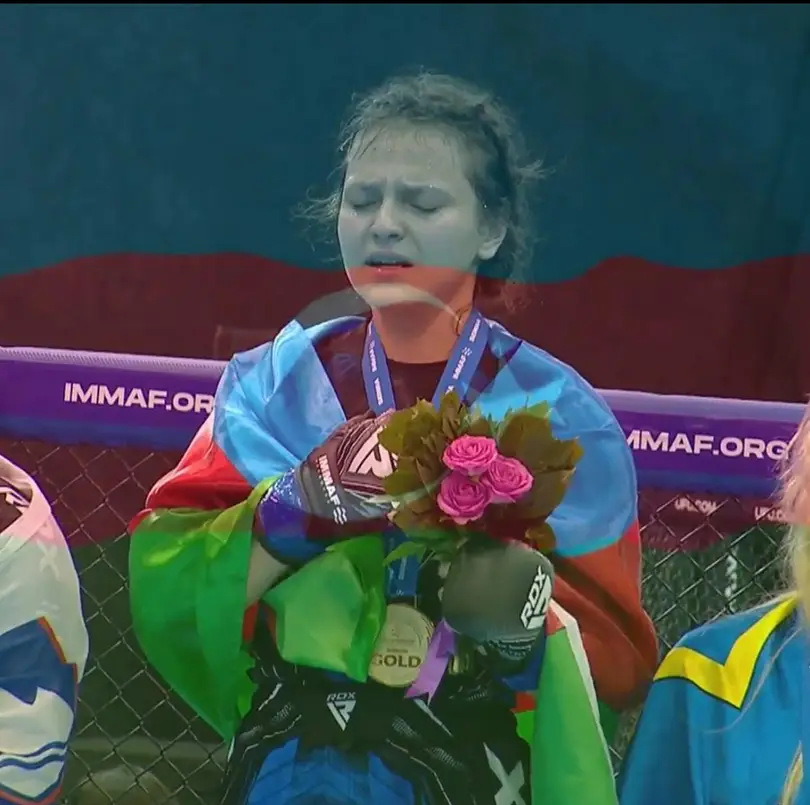
What are the key values you’ve learned from sports that also apply to entrepreneurship and life?
Discipline, respect, dedication, focus, constant learning, and belief. Sport made me extremely disciplined: I’ve never skipped a single training session, and I keep a daily and weekly schedule that carries over into my life and work. You can’t succeed if you don’t respect and give value to the people around you, so I stay grateful to everyone who played a role in my journey. Being focused and dedicated keeps me on the goal, and I’m always hungry for new knowledge and skills, constantly looking for ways to adjust and improve. It’s the same in business, when you work on your passion, you’re always seeking the next improvement. And above all, belief, in the work and in myself, keeps me moving when things get hard.
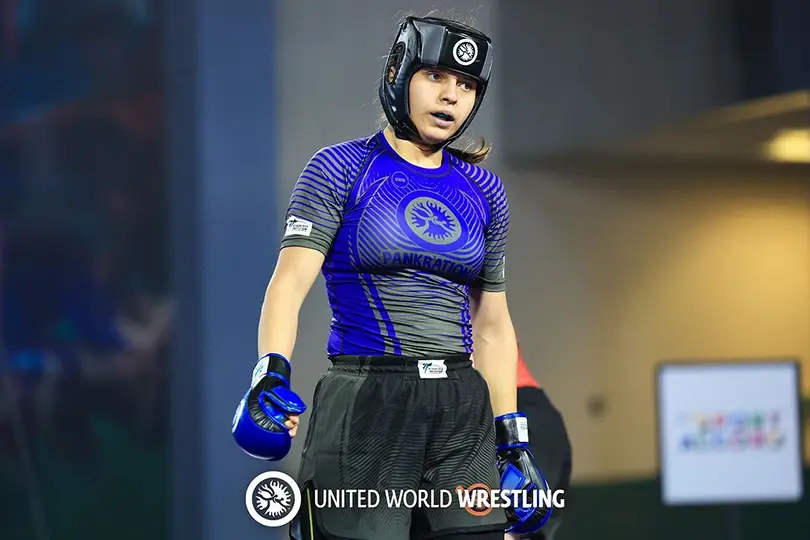
You mentioned your dream of earning a UFC belt. What does that dream symbolize to you beyond the sport itself, Esmira?
To me, a UFC belt is more than a title, it’s a platform. I was born with paralysis, grew up facing abuse, and later was bullied at school; through all of it, I felt God beside me and witnessed what I can only call miracles. Early in my career, before any wins, I prayed for the chance to tell the world about His grace. I’ve never hesitated to share how present He’s been in my life. Earning the belt would amplify that promise, so I can reach more people with a message of faith, perseverance, and hope beyond whatever past they carry.
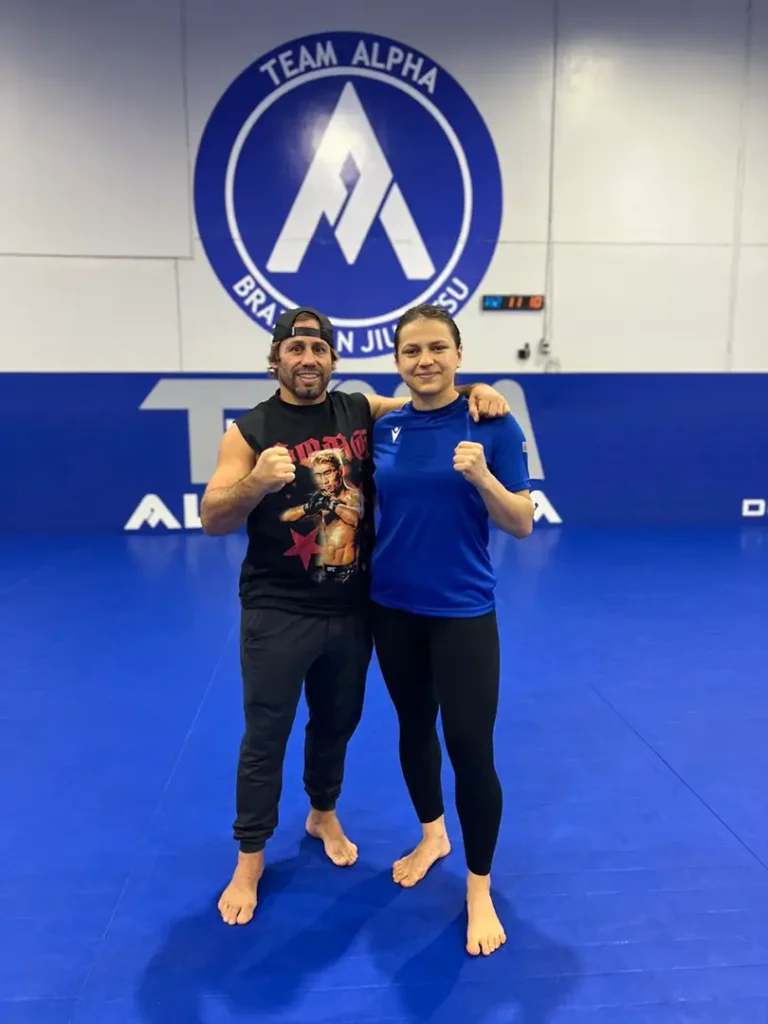
Looking ahead, Esmira, how do you envision combining your business education, athletic achievements, and personal story to make an impact on others?
Looking ahead, I want to combine my business training, athletic platform, and personal story to open free community gyms in small villages in my home country. Kids there are talented and hungry for achievement, they often just lack access. I plan to build a sustainable model (local partners, small grants, and content-driven fundraising) and offer coaching, basic equipment, and scholarships. I also want to be a visible example for women who have faced domestic or other forms of violence, creating safe programs for self-defense, mentorship, and support. Above all, I want to show that limits are learned, not fixed, and that what matters most is the voice inside you, not society’s opinion.
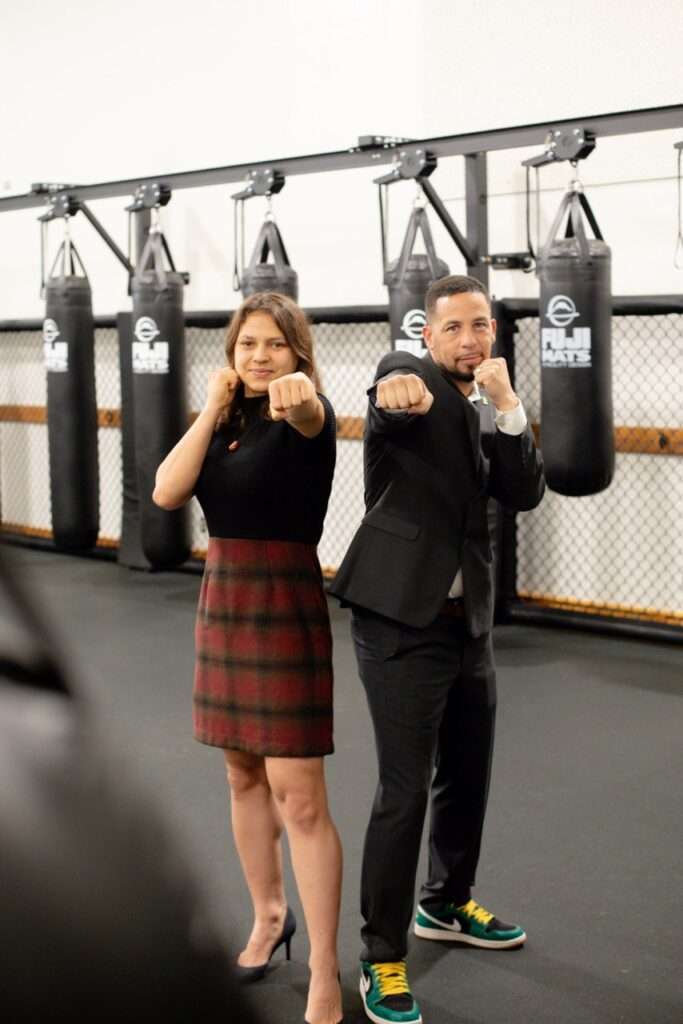
“Limits are learned, not fixed. What matters most is the voice inside you, not society’s opinion.”
From the Publisher
Esmira Mammadova embodies the rare blend of discipline, intellect, and heart. Her story is not just about combat, it’s about conviction. She reminds us that greatness often begins in silence, in those unseen moments of persistence and faith. And when that quiet determination meets opportunity, it creates not just a champion, but a leader who inspires others to rise.



